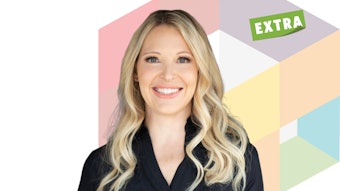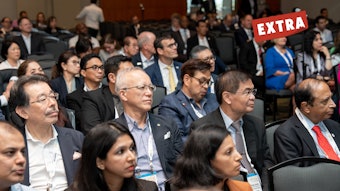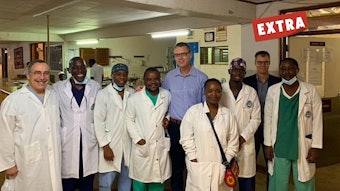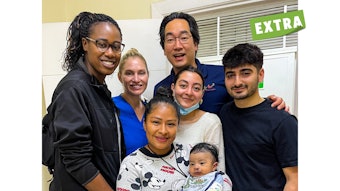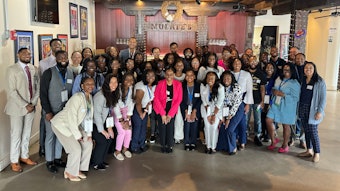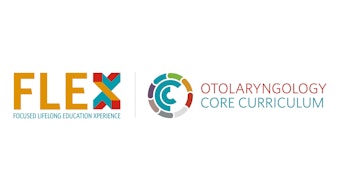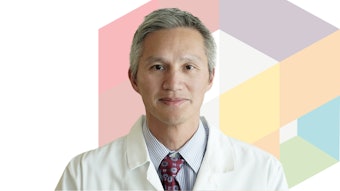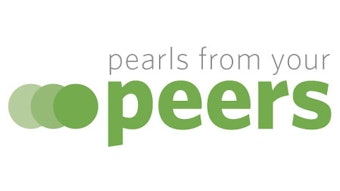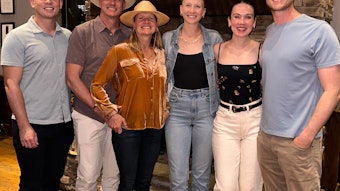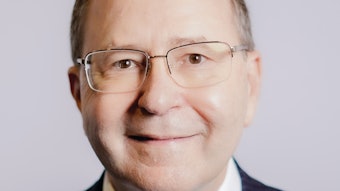Preserving the Specialty’s Rich Past
Lee D. Rowe, MD, recently donated several important artifacts to the AAO-HNSF archival museum, and through his life’s work, he also leaves lessons learned.
As one of the oldest medical and surgical specialties in the United States, otolaryngology-head and neck surgery has many historical artifacts that tell the story of the specialty from its pioneering beginnings.
 Otolaryngologist and long-time Academy member, Lee D. Rowe, MD, at his Philadelphia, Pennsylvania, office.
Otolaryngologist and long-time Academy member, Lee D. Rowe, MD, at his Philadelphia, Pennsylvania, office.
Included among some of the items donated were:
- A completely intact Chevalier Jackson adult and pediatric bronchoscope and laryngoscope set from 1940
- Several medical and surgery textbooks from the 1880s and early 1900s
- The complete study notes of Dr. Maurice Cottle's iconic hands-on teaching course, Corrective Surgery of the Nasal Septum and External Pyramid, which was printed in 1960
- Several highly sought-after historical textbooks, including Micro-laryngoscopy and Endolaryngeal Microsurgery: Technique and Typical Findings by Oskar Kleinsasser; Tympanoplasty and Stapedectomy: A Manual of Techniques by Ugo Fisch; Complications of Head and Neck Surgery by John Conley; and Diseases of the Sinuses: Diagnosis and Management by David W. Kennedy, Simion James Zinreich, and William E. Bolger
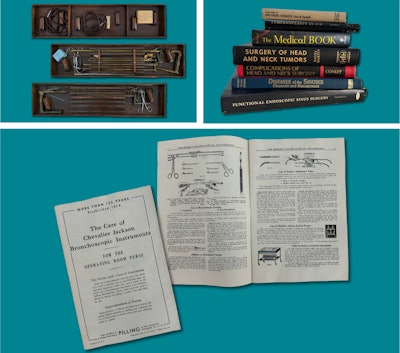
For Dr. Rowe, donating these items was a natural choice. “I have always felt a strong connection between what I have done in my life with what others contributed to our specialty before me,” he told the Bulletin. “This carries with it the understanding that history not only shapes our present but enlightens our future as well. Because of this, I sensed an obligation to preserve the past and maintain a focus on who we are and where we are going.”
Meeting with Academy Luminary Leads to Epiphany
For as long as he can remember, Dr. Rowe wanted to be a physician and surgeon. The son of a restauranteur and entrepreneur father and a mother who had an exquisite eye for detail, Dr. Rowe knew early on that he wanted to use the respective talents he inherited from his parents. But it wasn’t until a meeting with an Academy luminary that he decided otolaryngology would be his path.
“Through a series of interconnected events during my first and second years of medical school, I ended up one spring Saturday morning in 1972 in the University of Pennsylvania laboratory of Dr. Eugene Myers,” Dr. Rowe recalled. “It was not until that meeting with Dr. Myers in his research lab at [the University of] Pennsylvania that I had my epiphany. I can remember walking out of the building after spending several hours with him, seeing what his research involved, and learning about the field in more detail, and I decided at that point that I wanted to become an otolaryngologist.”
Dr. Rowe noted that while many of his colleagues saw the field of otolaryngology as a “constricting field of endeavor,” he saw it as an opportunity to combine the mental practice of medicine with the physically creative hands of a surgeon.
“I walked out of Dr. Myers’ laboratory and immediately realized the paradox I had encountered: What may have appeared on the surface to be merely crawling through a narrow trapdoor was actually a window that was wide open for me to learn everything I wanted to learn about in medicine and surgery,” Dr. Rowe said. “It became a goal to work for—which l did with intensity and conviction.”
Making His Mark in Port Richmond, Philadelphia
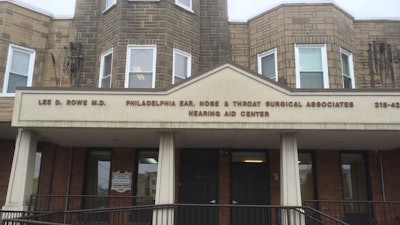
Upon arriving at Northeastern Hospital, Dr. Rowe was met with several challenges, including the hospital not having a fully functioning otolaryngology clinic, or any otolaryngology or head and neck surgery equipment available in the operating room. To combat this issue, Dr. Rowe borrowed equipment from other hospitals in Philadelphia where he worked until hospital administrators realized he was there to stay and purchased equipment he could use.
Another challenge Dr. Rowe encountered was a lack of sufficient office and clinic space, but with the help of his associates at the time, he started purchasing row homes across the street from Northeastern, and he gradually converted those homes into office space for his growing practice.
Potentially the biggest challenge Dr. Rowe encountered, though, was that many of his patients were not insured and often could not pay for their care in whole, or sometimes, at all. Northeastern Hospital was located in a working-class neighborhood, and a significant percentage of the patients he took care of were on Medicare or Medicaid or were self-insured. Many of the children he cared for received government assistance.
 Dr. Rowe and his wife, Lauren Rowe, a certified audiologist and classically trained vocalist.
Dr. Rowe and his wife, Lauren Rowe, a certified audiologist and classically trained vocalist.
With the support of his wife and others, Dr. Rowe helped improve and save the lives of thousands of Philadelphians throughout his over 40-year career in Philadelphia.
“Our Specialty Is an Amazing Field”
Now retired, Dr. Rowe is optimistic about the future of otolaryngology. He believes that the field is in good hands as long as future otolaryngologists remember one important thing, "The future of humanity is held in the hands of those who are willing to learn with empathy for all people.”
“Our specialty is an amazing field,” Dr. Rowe said. “If they maintain their zest for knowledge and embrace empathy for their patients, the next generation of otolaryngologists will be pricelessly rewarded and hear the voices of wisdom. I’ll guarantee that.”
Dr. Rowe enjoys a variety of physical activities in his retirement, including long-distance running, pickleball, and various types of biking. He also shares his wife’s love of music and participates in several musical endeavors with her. He also travels and enjoys spending time with his family and reconnecting with people from his past.
“I’m spending my remaining years reaching out to the people I care for in my own life. In my opinion, life does come full circle,” Dr. Rowe said.
